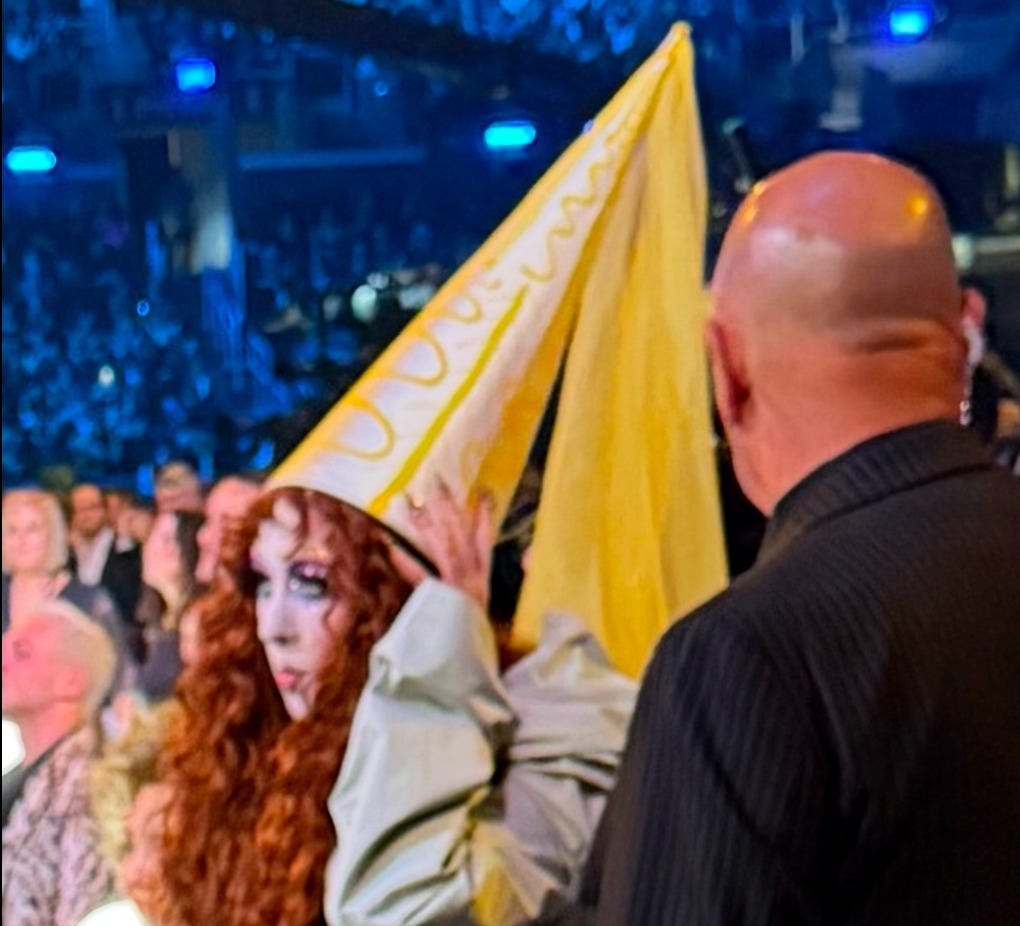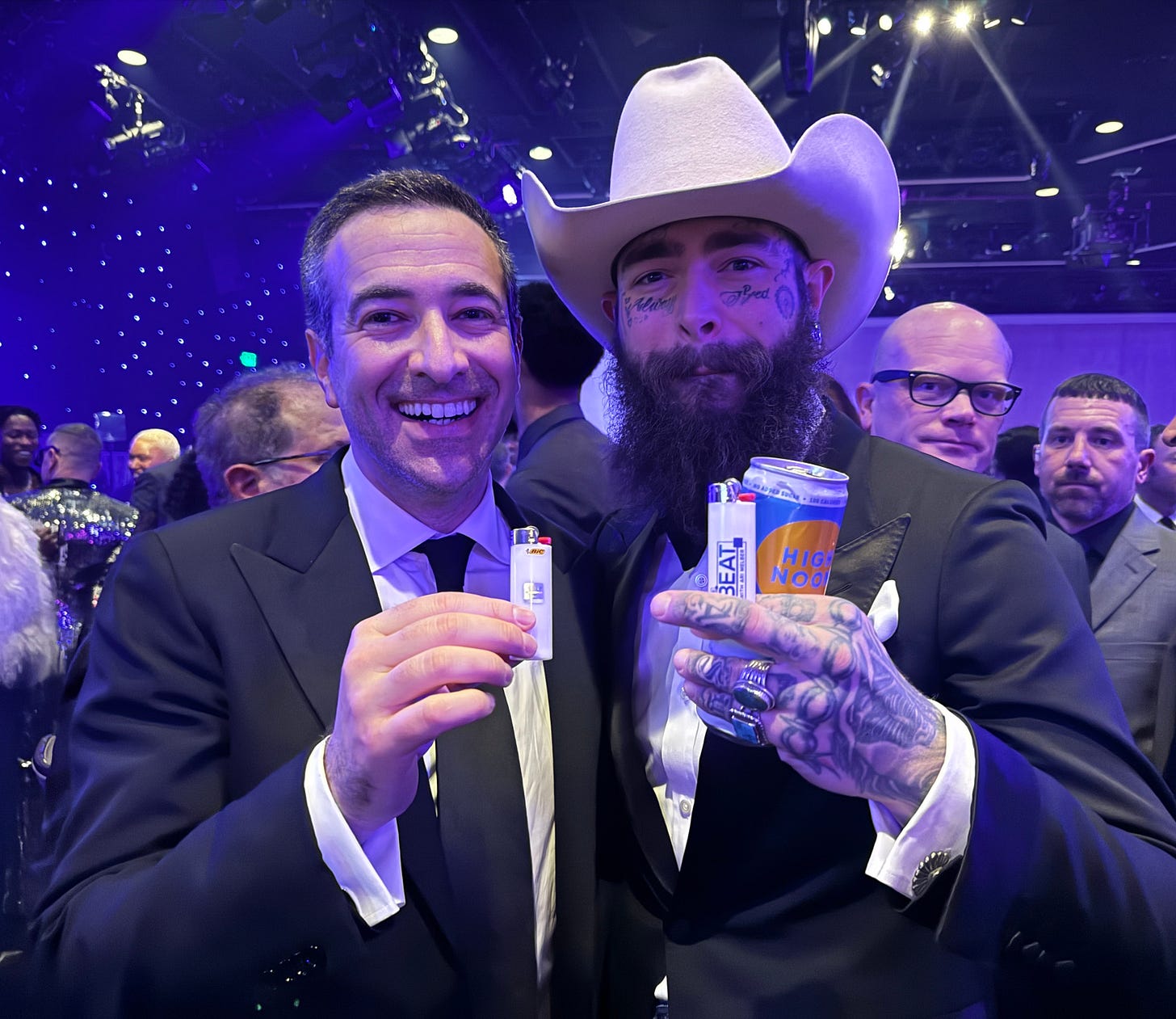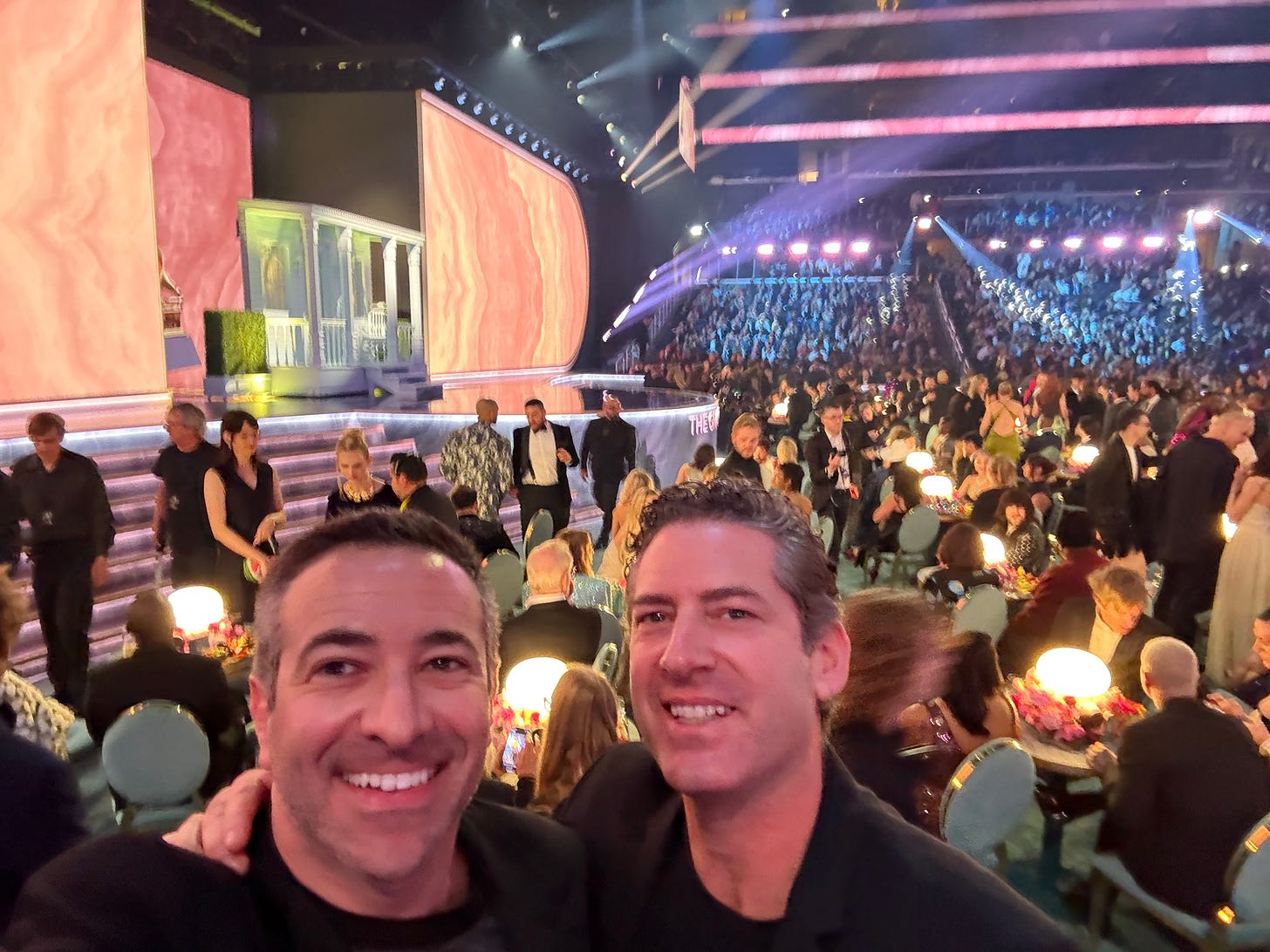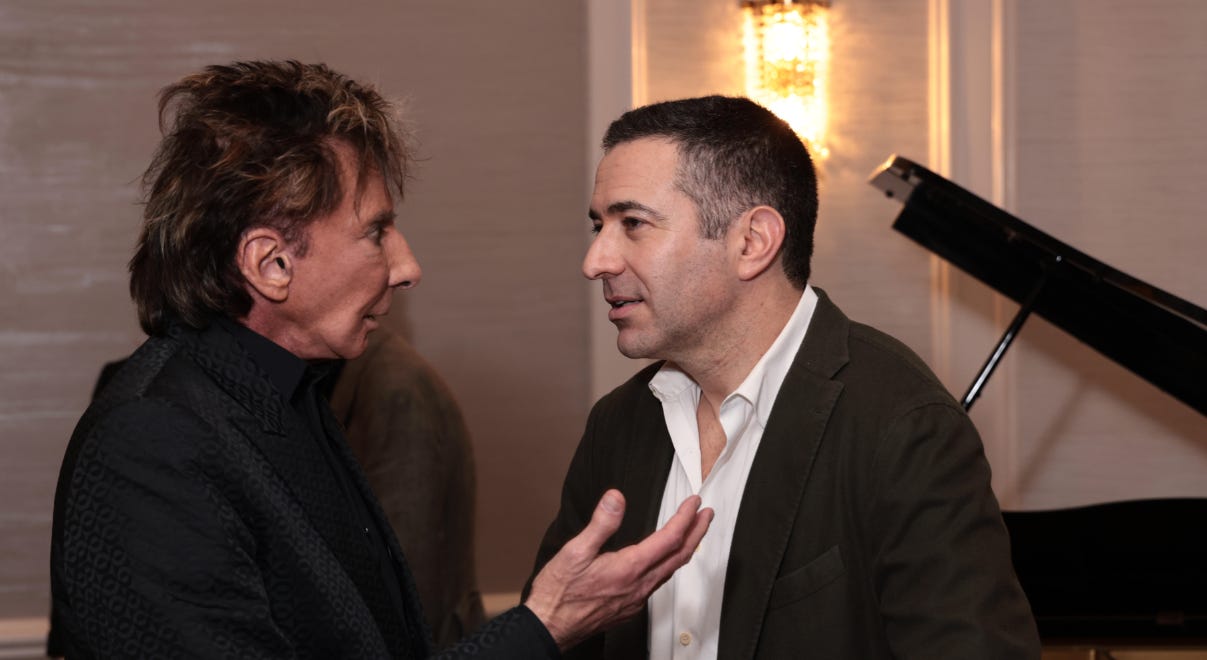Hi, Ari here, with a new entry of my newsletter for you below…
You can always become a full subscriber to receive all newsletter editions and my annual subscriber Zoom Call:
Starving artists & livable wages
Who is the top new artist in the country?
On Sunday, The Grammy judges selected Chappell Roan, who used her first big award speech to confront America’s health insurance crisis and corporate greed:
I told myself that if I ever won a Grammy, and got to stand up here — before the most powerful people in music — I would demand that labels in the industry, profiting millions of dollars off of artists, would offer a livable wage and health care.
When I got dropped [as a commercial artist], I had zero job experience under my belt. Like most people, I had … quite a difficult time finding a job in the pandemic and [could not] afford insurance. [Record] Labels: we got you — but do you got us?!
Roan is 26 years old. She released her debut album in 2023, and apparently kept the promise she made her slightly younger self — deploying the reach of that stage to advocate on behalf of others, and directly address the powerful corporate leaders in her own industry.
That was one of several breakthrough moments at this year’s Grammys, which I just attended in L.A. with my brother. The awards show often channels and shapes music culture, and this year offered a clear, sometimes bracing contrast to the negative, narrow messages coming out of MAGA’s return to Washington.
Winning Culture, instead of “Culture Wars”
Many great artists are original; they lead rather than respond. They create rather than critique. So it was notable how Roan, and other artists, led with their music, words and creative presentation in offering an affirmative path forward, which only implicitly sidestepped our retrograde politics.
Most people know there is a political crackdown on anything labeled woke, fluid or transgressive right now. Republicans are taking victory laps as they claim a 1.5 point election victory reflects 100% of their chosen values and grievances. (Or was it about grocery prices?). Roan not only called out corporate greed that denies people livable wages. She did so in a look that might ‘trigger’ those who want to use power to repress culture wars they cannot win on their own terms.
British writer Alexis Petridis cites that contrast and the shifting “mood in pop” in his dispatch:
Roan turned up to the ceremony wearing a wimple, and drag-queen makeup, and spent her acceptance speech excoriating the music industry for its unwillingness to provide young artists with a living wage in an era of record profits...it’s exactly the kind of thing that Chappell Roan does: she’s both impressively outspoken, and possessed of a very original take on how a pop star should look.
“Fight with you”
Roan is one new artist with an emerging following. There was also an award for Shakira, the long-beloved Colombian singer. She is not a U.S. citizen, if you keep track of that kind of thing, and she dedicated her win to immigrants in the U.S.:
I want to dedicate this award to all my immigrant brothers and sisters in this country. You are loved, you are worthy, and I will always fight with you.
That call resonated given Pres. Trump’s denigration of immigrants, and amidst rising deportation rates across both the Biden and Trump administration.
The most explicit reference to today’s politics, however, came from Alicia Keys. Receiving a “Global Impact” award, she protested the Republican pressure on companies to drop (relatively recent) programs advocating “Diversity, Equity and Inclusion”:
This is not the time to shut down the diversity of voices. We’ve seen on this stage talented, hardworking people from different backgrounds with different points of view, and it changes the game. DEI is not a threat — it’s a gift.
Keys invoked the visible diversity of many people’s favorite musicians, and stars, as an argument for broader diversity programs. The point is both true, and sadly limited. Americans have long shown they are fine with a type of diversity for their entertainment, or sports, but not when it comes to their boss, colleagues, or their children’s schools.
The Grammy’s own history with diversity was also in the room, as the ceremony touted how it has diversified its own voting academy; recruited megastar The Weeknd for a performance ending his past Grammy boycott; and then bestowing Beyonce with the coveted Album of the Year award that had long eluded her (stoking a multiyear debate about race, genres and crossover stars), and celebrating Kendrick Lamar “sweeping” Grammy categories that are virtually never won by rappers.
Like Us
Then there was the night’s crowning of Kendrick Lamar.
The Pulitzer-winning Compton rapper did not even have an album up for consideration for this year’s Grammys. Yet he won the most awards of any artist, and swept the two big awards, Record and Song of the Year. That’s because of all the unplanned songs that he (and Drake) dropped during their battle last year. And those big awards are rarely won by rappers — the show has typically treated hip hop as a genre that doesn’t ascend to the top of mainstream music, (a point of contention that echoes the Beyonce debate).
Now, Kendrick is only the second rapper in history to win both of those titles, after Donald Glover, who won for “This is America.” (That groundbreaking social commentary began as a “Drake diss,” Glover later revealed, as a patriotic jab at the Canadian hitmaker. )
Art of Diss
Now, an actual diss against Drake swept the awards, with Kendrick bring a Sun Tzu level of strategy, timing and success to checkmate and K.O. his longtime rap rival. What started as a fairly intricate, coded battle for rap fans blew up into one of the largest developments in music and culture this year, with athletes, musicians and Kamala Harris embracing the anthem. (It “wasn’t just a huge commercial success, it influenced everything, from US sports to the campaign messaging of the American presidential election to sales of the fashion brands,” as The Guardian observed.)
Lamar somehow elevated the art of the diss while simultaneously taking it into the gutter, with savage, personal attacks on Drake’s life, conduct, music and ethics — yielding lawsuits and defamation claims — yet insisting this was larger than a petty rivalry, and drawing battle lines between “us” — honest people who value respect — and “them,” who are, by definition, “not like us.” Those three words are now part of culture — with The Grammy’s imprimatur and a Super Bowl signal boost coming this weekend. We watched Kendrick take a seat on the floor moments before the first award announcement, and saunter with a knowing excitement up to the stage, where he talked about art and inspiration without even elliptically mentioning his defeated rival.
As a sidenote: Kendrick first used the phrase in a 2018 song with Jay Rock (‘Wow Freestyle’), and it gestated before becoming the chorus that ended the flurry of diss songs in a battle that, Kendrick would claim, he did not start. Or as Donald Glover has said, “Time is the oven that makes something special.”
Anyway, it’s fascinating to see hip hop ascend to this level on Music’s Biggest Night, and not with some “crossover” collaboration, but rather the raw, authentic essence of the medium — two people battling through the sheer power of lyrics and art, with the results determined the people.
P.S. Let me know your thoughts or questions in the comments. You can share this free post here:










Diversity is what makes America, America. I was blessed to have been raised by my a mother who taught me to love and respect all people and never judge if they looked “different” than we did. She always said judge from what’s inside a person - she would say, sweetheart, in the emergency room, when I take care of patients, they all bleed the same red blood; because we are all the same. I never will forget that and she was an amazing role model. Great article Ari.
I’ve been waiting for this article from you, Ari. I’m so happy that you were able to experience this years Grammy along side your brother!
You spoke exactly what I was feeling on all fronts of the various stages of art and artists who were able to win in their respective genres!
Fantastic commentary Ari 👏🏽👏🏽👏🏽❤️🔥
Thank you 🙏🏽